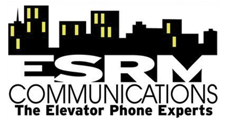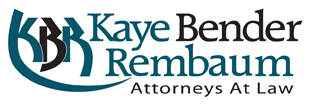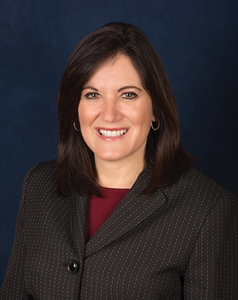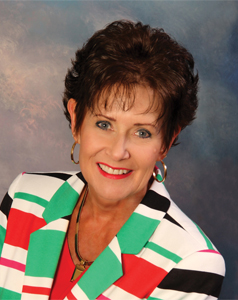
FCAP Community
Published June 2019
Florida Community Association Professionals’ (FCAP) training is offered on two levels. Level one consists of courses meeting Florida’s continuing education requirements for CAMs, and level two is the Florida Advanced CAM Studies (FACS) course. For further information about the more than 50 online continuing education classes available or to pursue the Certified Florida Community Association Manager (CFCAM) designation, please visit www.fcapgroup.com/membership/education-training/.

Lisa Elkan with Alliance Association Bank presents Carmen Roozrokh with her CFCAM Certificate of Completion
FCAP Congratulates Carmen Roozrokh—The Newest CFCAM
On March 28, Carmen Roozrokh became the latest community association manager to obtain her Certified Florida Community Association Manager (CFCAM) designation. When asked why she chose to pursue the professional CFCAM designation, she states, “I felt that I was in a good position to continue to grow in my field after five years of experience. I did my research and felt the CFCAM certification would be first on my career path.”
Carmen’s path to community association management has been an interesting one. She obtained her bachelor of arts degree in marketing from the University of Central Florida in Orlando and her associate of arts in finance from Valencia Community College, also in Orlando. From there, she started work as office manager/executive assistant to CEO, CFO & COO of a Fortune 500 company with 600-plus employees while taking care of accounting services. In 1995, she moved into home sales, which would occupy her through 2009. She obtained her real estate license in 1997.
In fall 2009, she began on-site sales and leasing of condominiums in Boynton Beach. She obtained her CAM license in 2010, and in fall 2011, Carmen began working for GRS Management as community association manager for Canyon Springs HOA until December 2014. When asked what professional achievement she is proudest of, Carmen comments, “My proudest achievement is being respected by the residents at my previous community even after I left.” Carmen continues to work for GRS Management at The Bridges HOA in Delray Beach.
Florida Community Association Professionals (FCAP) had the opportunity to talk with Carmen, and some of her responses are below.
What Issues Are Community Association Managers Facing in 2019?
The hardest thing facing a manager is to help educate the residents about how the HOA or condominium association works and what the manager’s role involves. It is important for residents to understand the manager doesn’t make the rules but follows the documents and state statutes.
Why Did You Decide to Become a CAM?
I came from a background of working for builders/developers. When I relocated to South Florida, it was a natural fit for me to get involved in property management and obtain my CAM license.
What Is the Most Rewarding Thing About Your Job?
Every day is a different challenge, and I get to work with some amazing residents and vendors.
Who Has Been Your Biggest Influence?
My husband. He has been supportive of me working late hours and being on call 24/7.
CAM to CAM
Marcy L. Kravit, CMCA, AMS, PCAM, CFCAM
AKAM ON-SITE Managing Director
Editor’s Note: This will be a two-part article with the second part to be published in the June issue.
Tips on How to Deal with Toxic Individuals Who Try to Drain the Life Out of You, Part II
Editor’s Note: The first part of this article was published in the FCAP Community column in the May 2019 issue on page 20, or it can be accessed at www.fcapgroup.com/flcaj/flcaj-articles/fcap-community-may-2019/.
How to Win Friends and Influence People!
By Dale Carnegie
Dale Carnegie wrote the book How to Win Friends and Influence People, and it was published back in 1936. The concept still applies today.
Here is an excerpt from the book:
Techniques in Handling People
- Don’t criticize, condemn, or complain.
- Give honest and sincere appreciation.
- Arouse in the other person an eager want.
Six Ways to Make People Like You
- Become genuinely interested in other people.
- Smile.
- Remember that a person’s name is to that person the sweetest and most important sound in any language.
- Be a good listener. Encourage others to talk about themselves.
- Talk in terms of the other person’s interests.
- Make the other person feel important—and do it sincerely.
Win People to Your Way of Thinking
- The only way to get the best of an argument is to avoid it.
- Show respect for the other person’s opinions. Never say, “You’re wrong.”
- If you are wrong, admit it quickly and emphatically.
- Begin in a friendly way.
- Get the other person saying “yes, yes” immediately.
- Let the other person do a great deal of the talking.
- Let the other person feel that the idea is his or hers.
- Try honestly to see things from the other person’s point of view.
- Be sympathetic with the other person’s ideas and desires.
- Appeal to the nobler motives.
- Dramatize your ideas.
- Throw down a challenge.
Be a Leader: How to Change People Without Giving Offense or Arousing Resentment
- Begin with praise and honest appreciation.
- Call attention to people’s mistakes indirectly.
- Talk about your own mistakes before criticizing the other person.
- Ask questions instead of giving direct orders.
- Let the other person save face.
- Praise the slightest improvement and praise every improvement. Be “hearty in your approbation and lavish in your praise.”
- Give the other person a fine reputation to live up to.
- Use encouragement. Make the fault seem easy to correct.
- Make the other person happy about doing the thing you suggest.
On Criticism
Carnegie’s book states, “Criticism is futile because it puts a person on the defensive and usually makes him strive to justify himself. Criticism is dangerous because it wounds a person’s precious pride, hurts his sense of importance, and arouses resentment. …. Any fool can criticize, condemn, and complain—and most fools do. But it takes character and self-control to be understanding and forgiving.
On Dealing with People
When dealing with people, let us remember we are not dealing with creatures of logic. We are dealing with creatures of emotion, creatures bristling with prejudices and motivated by pride and vanity.
On Influence
The only way on earth to influence other people is to talk about what they want and show them how to get it.
On the Secret of Success
Dale Carnegie explains that if there is any one secret of success, it lies in the ability to get the other person’s point of view and see things from that person’s angle as well as from your own.
My advice is to find out what the other person’s likes are and focus on them to stir up conversations about them. Maybe they are just seeking attention and need for you to show you care. Perhaps they have an upcoming trip, or their grandchildren are scheduled for a visit, or a loved one is suffering from an illness. You are more than just a property/community association manager. Let’s face it: this business is all about the people and engaging them could be the answer in turning their attitude around!
Ask for help!
If you’re struggling to manage these people, you’re not alone. Talk to your board members, colleagues, management company, and trusted peers about the challenges you’re having. Draft a sequence of events log on paper to document the situation to let out some steam and vent.
Don’t Take It Personally!
It’s easy to surrender to the needs of the energy vampires, but don’t. Don’t take it personally, as it is not about you. In fact, it will only feed their desire to feed on you with more of their negativity and misery. Once you set boundaries with them, they may just steer clear.
Take Action!
If the individual continues to violate rules and is verbally abusive and their behavior is negatively affecting the management, it may be time to call a meeting and/or send a cease and desist letter from the association attorney or a violation letter. It’s important to remain professional and maintain your composure but not at the expense of it affecting your health or your ability to conduct association business. Those who care about you will take action and be there to support you.
It is all about your approach as a professional manager. It is our job to resolve conflicts without confrontation and to avoid litigation. Addressing negative behavior can be challenging. Establishing rules and communicating in a professional manner goes a long way and can address some of the unruliest residents!
Because You Asked
By Betsy Barbieux, CAM, CFCAM
Betsy,
It’s been a while! I read my new issues of Florida Community Association Journal with interest and saw several references to the application of the condominium director eight-year term limits, which attorneys in this line of work are guessing about.
The subject came up with one of my associations, and I found the attached September 14, 2018, Declaratory Statement issued on the subject from the Division, which to me says that they’re essentially applying the literal wording of the statute to the immediate facts related to the subject director’s service as a director and making an immediate (I’d call it “retroactive”) application that limits the future service of that director. See the highlighted paragraphs 7 and 8 at the end of the statement.
– Philip J. Croyle, Attorney at Law
Philip,
Thank you for correcting me! Below is the summary of the Declaratory Statement issued on the request of Apollo Condominium Association Inc., Case No. 2018023783/DS 2018-035, filed with the DBPR Deputy Clerk on September 14, 2018, File #2018-07582.
ORDERED that, pursuant to the amendments made to section 718.112(2)(d)2, Florida Statutes, if at the time of the next scheduled election the current board member has served on the association board for eight consecutive years, that board member would be ineligible to serve unless there are fewer eligible candidates than vacant seats on the board or unless that candidate is approved by an affirmative vote of unit owners representing two-thirds of all votes cast in the election.
DONE and ORDERED this 12th day of September, 2018, at Tallahassee, Leon County, Florida.
– Betsy
Betsy,
Hope all is well. I was wondering if you could help me understand the difference between the PCAM and CFCAM designations. I want to sign up for more training!
– Michelle
Michelle,
Good to hear from you. All is well. These are credentials that are offered by professional organizations for licensed CAMs who complete additional intensive educational courses.
CFCAM (Certified Florida Community Association Manager) is the credential awarded by Florida Community Association Professionals (FCAP). Florida CAM Schools is authorized by FCAP to offer the four-day intensive classroom course. Otherwise, you can complete the online self-study course. You can see more information about the program at www.fcapschools.com.
PCAM (Professional Community Association Manager) is the highest credential of three offered by CAI—Community Associations Institute. It is a national organization that provides extended intensive additional education. You can see that information at www.caionline.org.
You can see our training schedule on the website Class Calendar page for the pre-licensing classes, board certification classes, and coming in the late summer, the CAM continuing education classes. We just completed the four-day prerequisite course for the CFCAM credential. We will likely not offer it again until next year.
– Betsy
Betsy,
We have a material alteration possibly coming up, but we need a vote. As I read it, it must be sent out like a ballot or via an electronic voting system. Our board would like to send an email to everyone explaining the alteration and asking for an email response. Can you provide guidance on where we can find the correct/legal way to initiate a vote on alterations?
Also, we have another question. Can people scan their ballots for the alteration and send them back via email, or do they have to be handled in the same manner as an election ballot?
-Marilyn
Marilyn,
A vote on a material alteration should be done on a limited proxy form. The board can certainly send out emails informing owners with all the information they need before they vote. However, they must vote on a piece of paper.
Electronic voting is a highly sophisticated coded and password-protected system offered by a few law firms and other specialty companies. I doubt that you have invested the hundreds of thousands of dollars into that system.
Certainly, the board may communicate by email, but voting should be done on a limited proxy form with the specific language of the motion and a place to check yes or no, the owners’ signature/designated voter, and the unit number.
And, yes, you can accept scanned and emailed or faxed proxy forms. F.S. Section 617.0721 Voting by members.—
(2) member who is entitled to vote may vote in person or, unless the articles of incorporation or the bylaws otherwise provide, may vote by proxy executed in writing by the member or by his or her duly authorized attorney in fact. Notwithstanding any provision to the contrary in the articles of incorporation or bylaws, any copy, facsimile transmission, or other reliable reproduction of the original proxy may be substituted or used in lieu of the original proxy for any purpose for which the original proxy could be used if the copy, facsimile trans-mission, or other reproduction is a complete reproduction of the entire proxy.
An appointment of a proxy is not valid after 11 months following the date of its execution unless otherwise provided in the proxy.
And just so that everyone doesn’t get confused, let’s call a limited proxy form, “a limited proxy form;” and an election ballot, “a ballot.”
– Betsy
FCAP Member’s Spotlight
 Daniello Companies
Daniello Companies
Concrete Restoration by Daniello Companies is located at 2708 N. Australian Avenue, Suite 9, in West Palm Beach, FL. Louis J. Daniello is president and Patricia Salazar is secretary/treasurer. The primary business focus is concrete restoration and waterproofing, with secondary services including impact window and door installation, concrete railings repair, painting, and metal and glass railing systems. Daniello Companies, serving Miami to Vero Beach, have been in business almost 30 years and are committed to work excellence and customer satisfaction on every project. Our staff of highly-trained and experienced personnel is dedicated to utilizing the most advanced and time-proven repair methods to deliver both quality and value to our customer.
For more information on Daniello Companies, call (888) 370-4333 or (561) 835-4788 or visit www.concreterepairing.net.
 ESRM Communications
ESRM Communications
ESRM Communications is known for elevator emergency communications and currently has the largest wireless elevator phone monitoring call center in Florida, monitoring more than 2,400 elevators in the state. Tom Worthington is President of ESRM Communications LLC located in South Florida. He is a State of Florida certified elevator technician and a State of Florida licensed electrical contractor. Worthington graduated from Florida State University with a bachelor’s degree in Criminal Justice and specializes in elevator emergency communications and security camera designs, consulting, and installations.
For more information, call (954) 825-3226 or visit www.esrmphones.com.
 Kaye Bender Rembaum
Kaye Bender Rembaum
Kaye Bender Rembaum is a full-service commercial law firm concentrating on the representation of 1,000-plus community associations throughout Florida, providing prompt, effective, cost-efficient, high quality, and understandable legal advice. With offices in Broward and Palm Beach and now Hillsborough counties, the Firm assists clients in all matters of association representation including, but not limited to, collection of assessments, contract drafting and negotiation, covenant review and amendments, covenant enforcement, and construction defect claims. The team also consists of several attorneys Board Certified in Condominium and Planned Development Law.
For more information, call (800) 974-0680, visit www.KBRLegal.com or follow www.facebook.com/KayeBenderRembaum.





